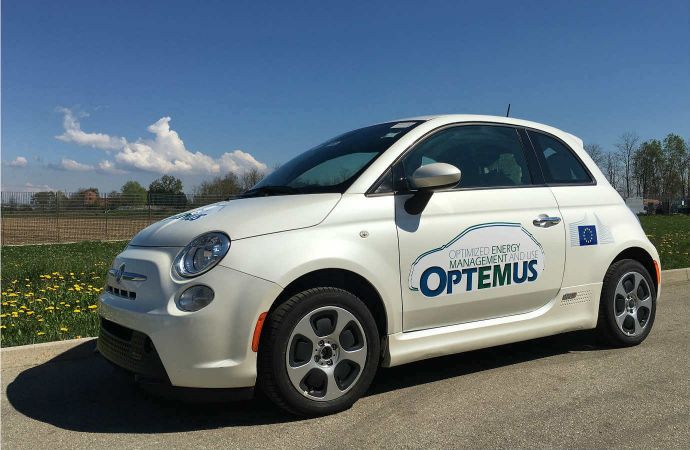An R290 heat pump system may play an important role in extending the driving range of electric vehicles, according to the EU project 'OPTEMUS'.

Extending the driving range is one of the most crucial challenges for electric vehicles, which consume a significant portion of their energy on heating and cooling. A propane-based (R290) heat pump may help to increase their range, according to an EU project.
To improve this, the European Union-funded 'Optimised Energy Management and Use' project or OPTEMUS (www.optemus.eu) has been looking at improving the driving range of electric vehicles, with a particular focus on thermal management systems. “The compact refrigeration unit is a key subsystem of the project,” Alois Steiner – project coordinator of OPTEMUS - told this website.
The compact refrigeration unit is a key subsystem of the project."
– Alois Steiner, OPTEMUS
OPTEMUS developed a prototype R290 heat pump for electric vehicles, which was tested in a Fiat 500e against a similar car running with an R134a-based air-conditioning system.
A new compact refrigeration unit (CRU) using R290 was designed. The unit is the size of a DIN A4 page (30cm tall) and incorporates the refrigerant cycle. It has four coolant connectors – two for cold and two for hot coolant. It provides cooling and heating for the cabin and also serves the battery system. Additionally, it can dehumidify the cabin air in an energy-efficient manner. Due to the unit's compact size, the refrigerant charge can be kept below 150g, which is below international limits and thus permits safe usage.
Simulation results show that with the CRU the driving range can be increased by 15-30% at low outside temperatures. To validate these results a Fiat500e equipped with the CRU is currently being tested in a climatic wind tunnel. Additionally, the OPTEMUS project proposes further technologies: a battery with phase-change materials (PCM) as thermal storage, a heated and cooled seat combined with smart cover panels for the passenger comfort, energy-harvesting technologies (photovoltaic panels and a regenerative shock absorber) as well as eco-driving and eco-routing.
The latter advises drivers to take the most energy-efficient route on their journey. Accelerating and braking are taken into account, so the car uses as little energy as possible, further increasing the electric vehicle’s driving range.
Together, all technologies under OPTEMUS are predicted to increase the range of electric vehicles by more than 40% in extreme weather conditions.

![]()
The OPTEMUS project received funding from the European Union’s Horizon 2020 research and innovation programme under grant agreement No. 653288.
Related stories



_1495438896_1496136803_1497340109_1500045285.jpg)
